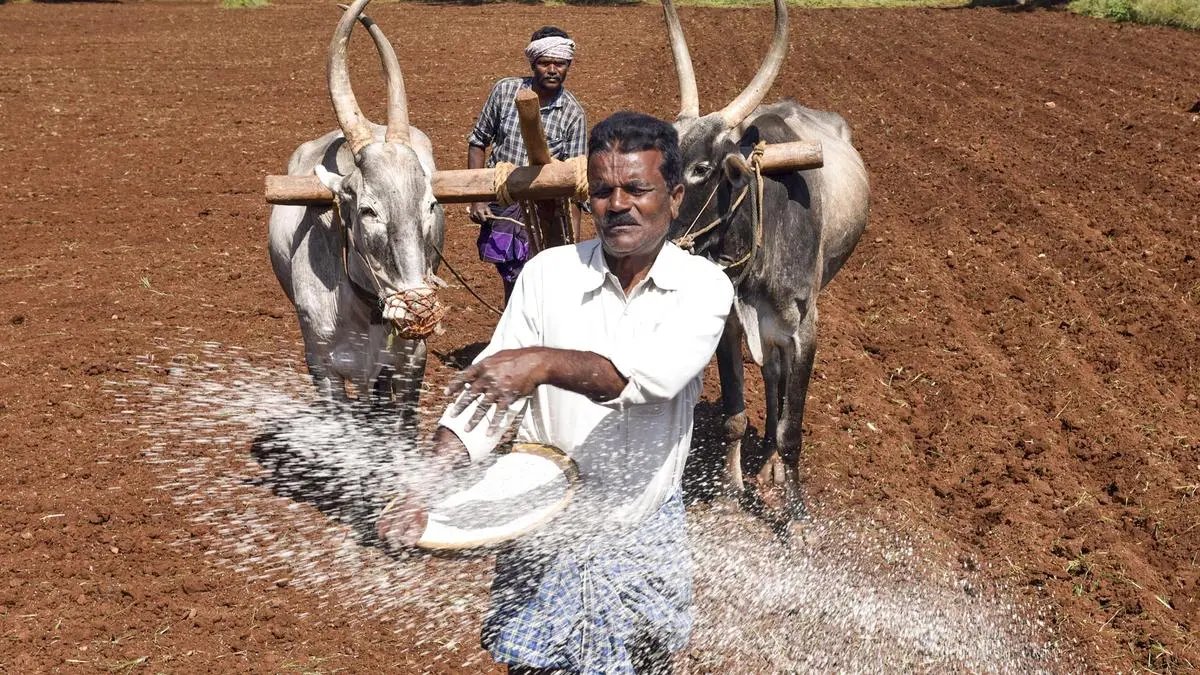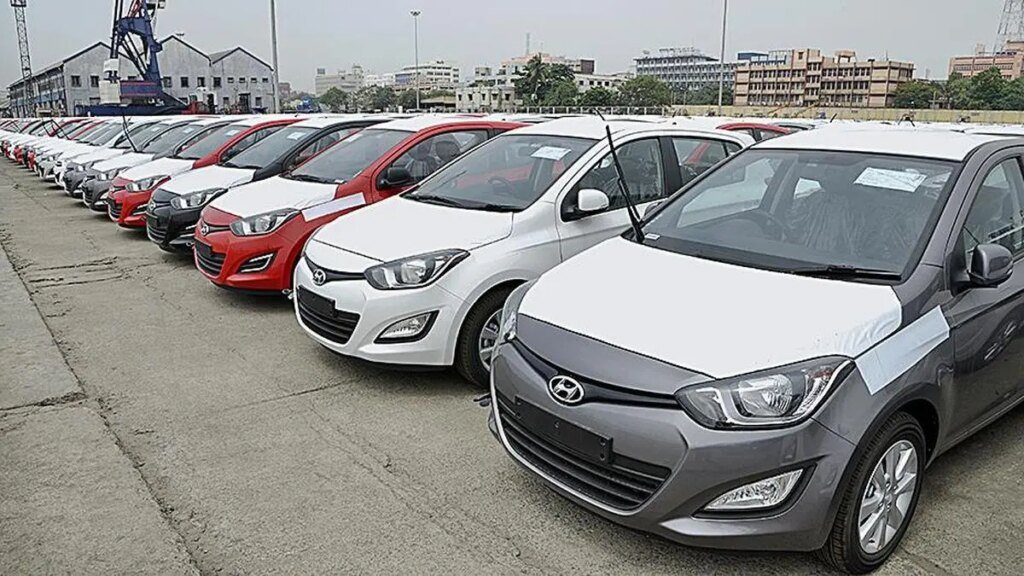Govt pushes nano-fertilizers amid surge in conventional fertilizer demand, but farmers remain wary


A farmer sprinkles fertilizer on his agricultural land being prepared for cultivation, in Chikkamagaluru
New Delhi
The government is urgently pushing the use of nano fertilizers (liquid) in the ongoing Rabi sowing season to address the growing concerns about supply of conventional (granular) fertilisers. This is triggered by simultaneous increase in both conventional fertilizer demand and widening of acreage under cultivation this year.
Data show that in the first week of November, sale of urea was 6.18 lt as compared to 2.58 lt compared to a year ago, DAP was 3.49 lt as compared to 1.43 lt last year, MOP was 0.49 lt compared to 0.27 lt last year and complex 3.10 lt from 1.60 last year. The total area under coverage too has increased by 27 per cent to over 130 lakh hectares as of November 10 compared to 102 lh a year ago.
The Agriculture Ministry has stepped in, with Agriculture Secretary Devesh Chaturvedi holding a meeting with stakeholders, including farmers and scientists, to gauge if nano-fertilizers can truly be pushed as an immediate alternative.
Feedback from farmers invited to share their experience was mixed. While some growers reported benefiting from using nano-urea and nano-DAP, others expressed strong reservations. Government sources noted a widespread reluctance among Indian farmers to embrace the technology, contrasting with “enthusiasm” observed in countries like the US.
The government is keen to push nano fertilizers while farmers are reluctant to use them in India. Government sources told businessline that in several other countries, including the US, there is enthusiasm about adopting of nano technology but in India, farmers remain lukewarm to the idea.
While farmers remain hesitant, fertiliser cooperative IFFCO, which invented nano technology in the crop nutrient, is trying to persuade them to get the seed treated with nano fertilisers before it is sown in the field.
Lakhbir Singh, a wheat farmer from Patiala district of Punjab, has 45 acres under the crop already sown this year and for the first time he has been using treated seed in 1 acre land.
“My sowing was completed by November 5 and as a trial I have used the treated seed only in 1 acre. The seed DBW 327 has been treated with non-DAP and IFFCO officials guided me in the treatment,” Singh told businessline.
Since the cost of cultivation is very high, he said, he did not want to take a risk for the entire area and if results would be better, he would consider an expansion.
Sources said that seed treatment with nano-DAP in wheat is a better option than direct application of it in the field as the treated seed when sown would save one fertigation of phosphates and it is same in terms of output.
IFFCO aims to increase sales of nano-DAP, non-Urea to 3.75-4.5 crore bottles in current fiscal from 3.64 crore bottles in FY2024-25.
If that is achieved, it may further revise the target to 6 crore bottles– Kharif 2.50 crore bottles and Rabi 3.50 crore bottles — in FY 2026-27, said an IFFCO official.
As one bottle of 500 ml of nano urea is prescribed to replace one bag of granular urea (of 45 kg) and similarly 1 bottle of nano-DAP to substitute 1 bag of conventional DAP (of 50 kg bag), the sales of nano-fertilisers by IFFCO during 2024-25 have saved use of 18 lakh tonnes of conventional granular fertilisers.
But agriculture experts said that since there has been forced selling of nano fertilisers, tagging with granular bags, it is not confirmed how many bottles are actually being in application in the field.
However, IFFCO maintains that the integration of nano fertilizers into India’s nutrient management framework offers a pivotal opportunity to transform the country’s agricultural landscape.
“By promoting higher input efficiency, environmental stewardship, and economic viability, nano fertilizers can play a central role in achieving holistic, resilient, and sustainable crop production systems not only in India but across the global agricultural community. Our goal is to promote the usage and benefits of nano fertilisers by educating farmers in large scale as it is a continuous process,” said an IFFCO spokesman.
Published on November 16, 2025



